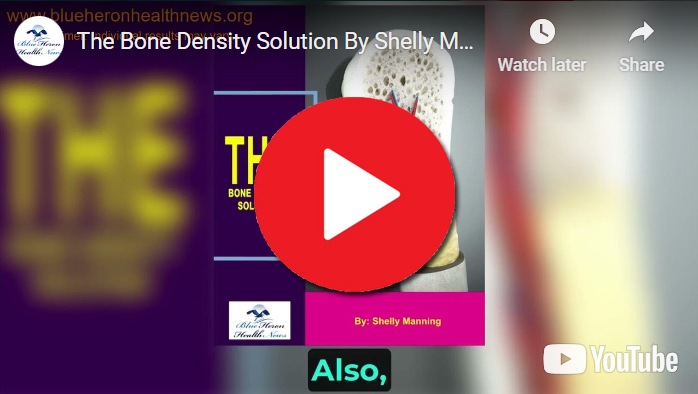
The Bone Density Solution by Shelly Manning As stated earlier, it is an eBook that discusses natural ways to help your osteoporosis. Once you develop this problem, you might find it difficult to lead a normal life due to the inflammation and pain in your body. The disease makes life difficult for many.
What are the common myths about bone density?
There are several common myths about bone density that can lead to misunderstandings about how to maintain strong bones and prevent conditions like osteoporosis. Here are some of the most prevalent myths:
1. Myth: Osteoporosis Only Affects Elderly Women
- Reality: While osteoporosis is more common in older women, particularly post-menopausal women, it can affect men and younger individuals as well. Men are less likely to be diagnosed with osteoporosis, partly because it’s often overlooked as a potential risk in males. Additionally, conditions like premature menopause, certain medications, and lifestyle factors can lead to early bone density loss in younger women and men (Labiotech.eu) (FIU News).
2. Myth: Calcium Alone Is Enough to Prevent Bone Loss
- Reality: While calcium is crucial for bone health, it is not the only factor. Vitamin D is essential for calcium absorption, and other nutrients like magnesium, vitamin K, and protein also play significant roles in maintaining bone density. Additionally, weight-bearing exercises, avoiding smoking, and limiting alcohol intake are important for bone health (Med Xpress).
3. Myth: If You Don’t Have Symptoms, Your Bones Are Healthy
- Reality: Osteoporosis is often called a “silent disease” because it typically does not present symptoms until a fracture occurs. Regular bone density screenings, especially for those at risk, are essential to detect low bone density before it leads to fractures (Labiotech.eu).
4. Myth: Osteoporosis Is Inevitable With Aging
- Reality: While bone density naturally decreases with age, osteoporosis is not an inevitable part of aging. With proper nutrition, regular exercise, and lifestyle choices, many people can maintain strong bones throughout their lives. Preventive measures can significantly reduce the risk of developing osteoporosis (FIU News).
5. Myth: Only Women Need to Worry About Bone Density
- Reality: Men also need to be concerned about bone health. Although men typically have higher bone density than women, they still lose bone mass as they age, and about one in four men over age 50 will experience an osteoporosis-related fracture. Bone density loss in men is often less recognized and therefore less treated (FIU News).
6. Myth: Dairy Is the Only Source of Calcium
- Reality: While dairy products are a well-known source of calcium, many other foods also provide this essential mineral. Leafy green vegetables (like kale and broccoli), fortified plant-based milks, tofu, almonds, and sardines are all excellent sources of calcium, which can help maintain bone density (Med Xpress).
7. Myth: Weight-Bearing Exercises Are Harmful to Bones
- Reality: Weight-bearing exercises like walking, running, and resistance training are actually beneficial for bone health. These activities help stimulate bone formation and increase bone strength. It’s important, however, to choose the right type of exercise based on individual health conditions and risk factors (Labiotech.eu).
8. Myth: Osteoporosis Isn’t a Serious Health Concern
- Reality: Osteoporosis is a serious health issue because it increases the risk of fractures, which can lead to significant disability, loss of independence, and even death, particularly in the elderly. Hip fractures, for example, can be life-threatening and often result in long-term care needs (FIU News).
9. Myth: Bone Density Tests Are Only Necessary After a Fracture
- Reality: Bone density tests, such as DEXA scans, are most beneficial when used as a preventive measure to assess bone health before fractures occur. These tests can identify individuals at risk of osteoporosis, allowing for early intervention to prevent fractures (Med Xpress).
10. Myth: Supplements Are Always Safe and Effective for Bone Health
- Reality: While supplements can be beneficial, they should be used cautiously and under the guidance of a healthcare provider. Excessive intake of calcium supplements, for example, has been linked to kidney stones and cardiovascular issues. It’s generally better to obtain nutrients from a balanced diet unless a deficiency is diagnosed (Labiotech.eu).
Understanding the facts about bone density can help individuals take appropriate steps to maintain their bone health and prevent osteoporosis. Regular check-ups, a balanced diet, physical activity, and staying informed are key strategies in bone health management.
The Bone Density Solution by Shelly Manning As stated earlier, it is an eBook that discusses natural ways to help your osteoporosis. Once you develop this problem, you might find it difficult to lead a normal life due to the inflammation and pain in your body. The disease makes life difficult for many.
